The oil and gas industry’s failure to keep up with lease payments to landowners has been called a ‘broken social contract’
TABER, Alta. — The failure of oil and gas companies to meet their lease and tax obligations continues to fuel unrest in rural Alberta. Many farmers and ranchers with oil and gas extraction sites on their property are not receiving payments from leaseholders and in other cases the companies have arbitrarily reduced payments. The downturn […] Read moreStories by Barb Glen

Solar proposal called encouraging
TABER, Alta. — Abandoned oil and gas well sites, which once produced one kind of energy, could feasibly be converted into producing a different kind of energy: solar. Keith Hirsche, the force behind a company called Renuwell, has been investigating the possibilities via a pilot project within the Municipal District of Taber. He provided an […] Read more
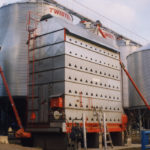
Alberta to fund improvements to grain dryers
Alberta farmers seeking to make grain dryer improvements will have access to funding through the Canadian Agricultural Partnership. The Efficient Grain Dryer Program is designed to help cover costs for improvements to grain dryers with an eye on energy efficiency. The program is retroactive to April 1, 2018, and $2 million has been earmarked for […] Read more
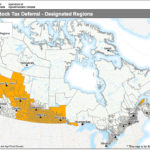
Feds expand livestock tax deferral list
A final list of the designated regions eligible for livestock tax deferral was released Feb. 18 by Agriculture Canada. The deferral was prompted by extreme weather conditions in various parts of the country last year, including drought, floods and excess moisture. It allows livestock producers to defer a portion of their 2019 sales of breeding […] Read more

Drier conditions prompt new look at irrigation
Different crops have different peak water needs so supplying available water at the most vital time can conserve water
Several southern Alberta irrigation districts put restrictions on water use last spring when dry conditions raised the spectre of insufficient supply to meet crop needs. Those restrictions were lifted when precipitation improved but they highlighted the wisdom of planning for similar limits should they occur in the future. “As we get potential climate change, perhaps […] Read more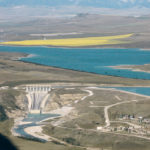
Water shortages challenge Alberta
The years 2015 to 2018 were challenging ones for water management in the South Saskatchewan River Basin. Water supplies were below average and so was precipitation. “Overall, the water supply has generally been five years of consecutive below-average runoff in both the Oldman and the Bow river basins,” said Alberta Environment resource manager Brian Hills. […] Read more
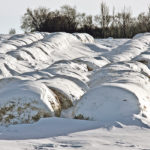
Hay bales need safe winter storage
It is best to store bales in single rows, leaving space between them and between the rows so they do not touch
As time and winter progress, those stored hay bales squat lower and lower. That’s gravity and nature at work, but up to a point, ranchers can preserve hay quality for their livestock through haying method and storage. Barry Yaremcio, Alberta Agriculture livestock and forage specialist, says indoor storage of bales is the best way to […] Read more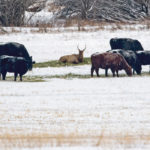
Winter riskiest time for elk disease transmission
Diseases that can spread between livestock and wildlife include anthrax, bovine tuberculosis, brucellosis and worms
Wildlife can spread disease to cattle and a recently completed study on southern Alberta elk has shed light on the issue. University of Alberta researchers studied the movement of radio-collared elk and correlated it with the locations of cattle herds grazed by 16 cattle ranchers in the province’s southwestern region. They concluded that the risk […] Read more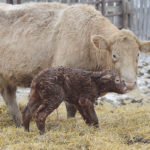
Calving 101: dystocia, intervention and feeding
A veterinarian says knowing when and how to intervene in a difficult birth can improve the odds for both cow and calf
FORT MACLEOD, Alta. — Calving season is underway, or soon will be, on ranches across the Prairies and a refresher on handling calving basics can come in handy. Dr. Melissa Moggy, speaking in her role with the Alberta Farm Animal Care Association, provided basic tips at the Feb. 11 Rural Roots Ag Days in Fort […] Read moreAlberta goes big with grain bag, twine recycling collection stations
The Agricultural Plastics Recycling Group operated by CleanFarms will have 20 collection sites, most of which will accept bags and twine
The first province-wide program to recycle grain bags and twine has been launched in Alberta through the Agricultural Plastics Recycling Group operated by CleanFarms. Twenty collection sites are available across the province. Not every site will accept both materials but most are accepting rolled, tied grain bags of any size, as well as twine. Surveys […] Read more




